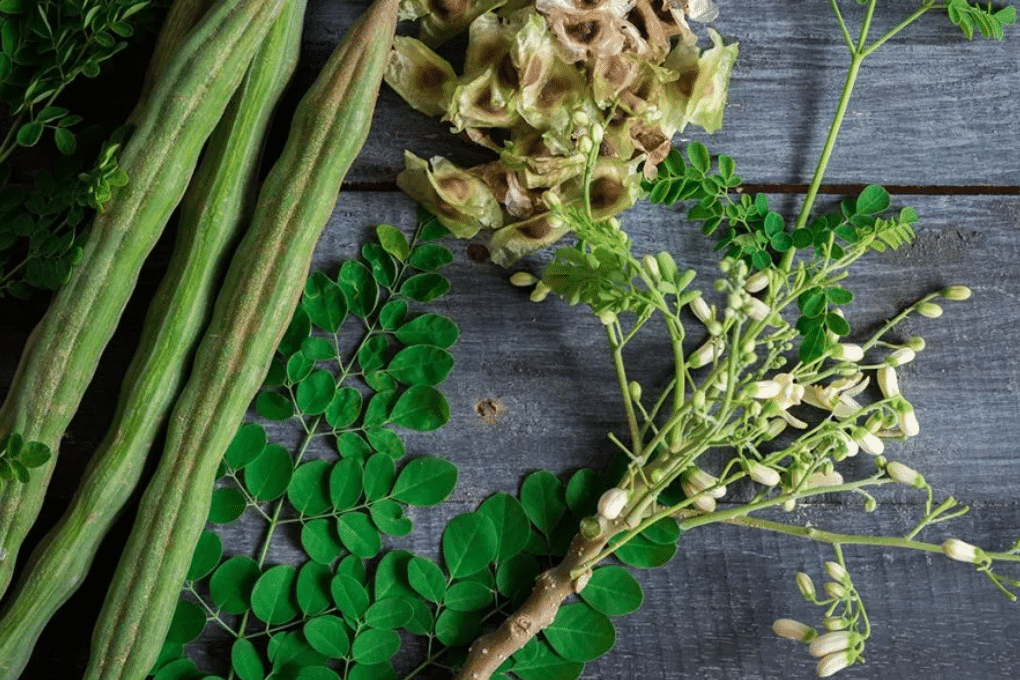Welcome to the wonderful world of Moringa – a powerhouse tree with incredible health benefits! If you’re looking to reduce cholesterol levels and maintain blood sugar, this blog is for you. Let’s dive into the nutritional value and numerous advantages of incorporating Moringa into your diet. Get ready to discover how this superfood can boost your overall well-being!
How Moringa Can Help Reduce Cholesterol Levels
Moringa, also known as the “miracle tree,” offers a natural way to reduce cholesterol levels. The leaves of the Moringa tree are packed with nutrients that can help lower bad cholesterol (LDL) while increasing good cholesterol (HDL). By incorporating Moringa into your diet, you can benefit from its high levels of antioxidants and plant compounds that support heart health.

Studies have shown that Moringa can help prevent the oxidation of LDL cholesterol, which is a key factor in the development of heart disease. Additionally, the fibre content in Moringa may aid in reducing cholesterol absorption in the gut, further supporting healthy cholesterol levels.
Including Moringa in your daily routine can be as easy as adding powdered Moringa to smoothies, salads, or soups. Its versatility makes it a convenient option for those looking to improve their heart health naturally.
The Link Between Moringa and Maintaining Blood Sugar Levels
The Moringa tree, also known as the “Miracle Tree,” has been gaining popularity for its numerous health benefits. One of the key advantages of consuming Moringa is its ability to help maintain blood sugar levels. Studies have shown that Moringa leaves contain compounds that can lower blood sugar levels by improving insulin sensitivity.
By incorporating Moringa into your diet, you may experience more stable blood sugar levels throughout the day. This can be particularly beneficial for individuals with diabetes or those at risk of developing the condition. The high fibre content in Moringa leaves also plays a role in regulating blood glucose levels by slowing down the absorption of sugars in the bloodstream.
Furthermore, Moringa’s anti-inflammatory properties can help reduce inflammation often associated with insulin resistance and high blood sugar levels. Regular consumption of this superfood may contribute to better overall metabolic health and reduce the risk of complications related to fluctuating blood sugar levels.
Other Health Benefits of Consuming Moringa
The Moringa tree is often hailed as a superfood for good reason: its leaves, pods, and seeds are packed with essential vitamins and minerals that offer numerous health benefits beyond reducing cholesterol and maintaining blood sugar levels.
Consuming Moringa can help boost your immune system due to its high vitamin C content, which aids in fighting off infections and illnesses. Additionally, the antioxidants found in Moringa can help protect your cells from damage caused by free radicals.

Not only does Moringa support healthy digestion thanks to its fibre content, but it also has anti-inflammatory properties that may help alleviate symptoms of conditions like arthritis. Furthermore, the plant’s antimicrobial properties make it beneficial for promoting healthy skin and preventing acne outbreaks.
Whether you choose to enjoy Moringa as a tea, or powder supplement, or incorporate it into your meals through salads or smoothies – this versatile superfood can easily be integrated into your daily diet for overall wellness.
Different Ways to Incorporate Moringa into Your Diet
Looking to add some nutritional powerhouse into your diet? Moringa is the way to go! This versatile plant can be incorporated in various forms to suit your taste preferences and dietary needs.
One simple way to enjoy moringa is by adding its powdered form into smoothies or juices for a nutrient-packed boost. You can also sprinkle moringa powder onto salads, soups, or even popcorn for an extra health kick.
If you prefer savoury dishes, try incorporating fresh moringa leaves into stir-fries, curries, or omelettes. The leaves have a mild flavour that pairs well with a variety of ingredients.
For those with a sweet tooth, consider baking with moringa powder in muffins, cookies, or energy balls for a wholesome treat. Get creative and experiment with different recipes to find delicious ways to include moringa in your daily meals!
Potential Side Effects and Precautions to Take When Using Moringa
When using Moringa, it is essential to be mindful of potential side effects and take necessary precautions. While Moringa offers numerous health benefits, consuming it in excessive amounts may lead to digestive issues such as diarrhoea or nausea. Pregnant women should consult with a healthcare provider before incorporating Moringa into their diet due to its potential impact on pregnancy. Additionally, individuals taking medications for diabetes or high blood pressure should monitor their levels closely when consuming Moringa, as it may interact with these medications.
Including moderate amounts of Moringa in your daily diet can contribute significantly to reducing cholesterol levels and maintaining healthy blood sugar levels. With its rich nutritional profile and various health benefits, the Moringa tree stands out as a valuable addition to your wellness routine. Remember to enjoy this superfood responsibly by being aware of any possible side effects and consulting with a healthcare professional if needed. Embrace the power of nature’s goodness with Moringa!

